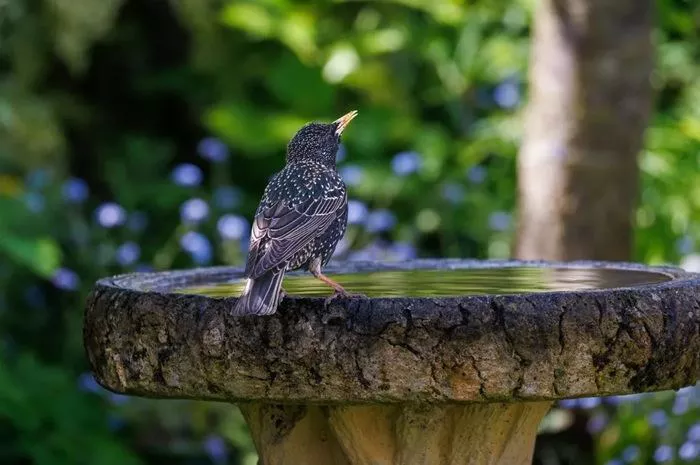Gardening enthusiasts are being advised to place copper coins in their bird baths to combat a common summer problem: contaminated water. Bird baths are a beloved garden feature, providing essential drinking and bathing water for a variety of bird species, including robins, redwings, chaffinches, magpies, starlings, and crows. However, during the warmer months, clean water can become scarce, especially as natural habitats are reduced by urban development.
One significant issue is the growth of algae, a green plant matter that can introduce harmful bacteria into the water. This can spread disease and pose a threat to birds. To address this, gardening experts are recommending the use of copper coins, such as 1p and 2p pieces, in bird baths. According to the Express, copper coins can inhibit bacterial growth and keep the water cleaner for longer.
Coins minted before 1992 are particularly effective, as they contain a higher copper content. Prior to 1992, UK copper coins were made up of 97% copper, compared to the copper-plated steel used after that year. Pergolux UK advises that algae can form in bird baths due to debris falling into the water. To prevent this, bird baths should be refilled every few days. If algae persist, a thorough cleaning is recommended, followed by the addition of a copper coin to the fresh water.
House Digest explains that the copper in the coins releases ions that slow algae growth. While large quantities of copper can be harmful to birds, small amounts are safe. In fact, the presence of shiny pennies can also attract birds like crows and blue jays, which are drawn to reflective objects.
To maintain effectiveness, it is recommended that the copper coins be replaced every few months. This method is an eco-friendly alternative to harsh chemicals and cleaners, which can be harmful to wildlife and the environment. Additionally, bird bath water should be changed regularly, especially in warmer climates, to ensure it remains clean and fresh.
By taking these simple steps, gardeners can help provide a safer and cleaner environment for birds, while also enhancing the appeal of their gardens.


